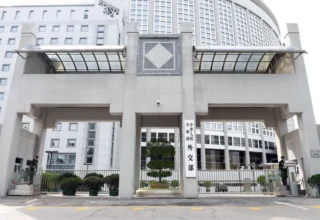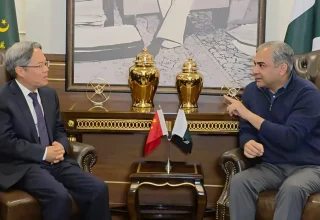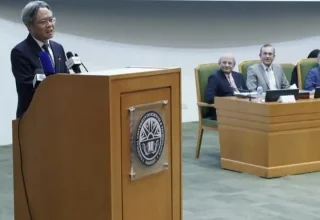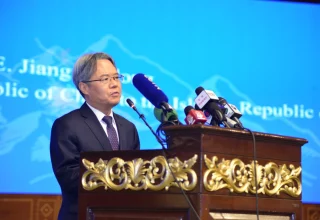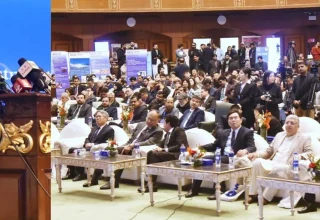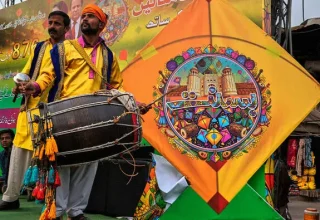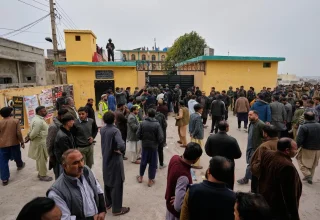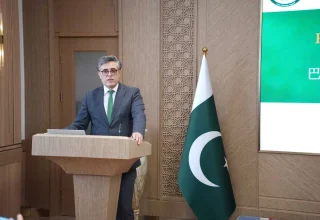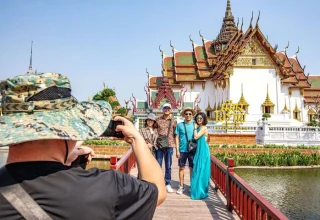
In an era where divisions and misunderstandings between civilizations threaten global harmony, Chinese President Xi Jinping’s Global Civilization Initiative (GCI) emerges as a bold, timely and visionary framework for fostering peaceful coexistence, cultural harmony and mutual respect. The initiative underscores the need for equality, inclusivity and dialogue among different civilizations, challenging the outdated notion of “clash of civilizations” with a refreshing, optimistic narrative, one of shared progress, common values and unity through diversity.
The GCI, introduced by President Xi in 2023 is not merely a policy idea but it is a philosophical commitment to a better global future. It is grounded in four key principles that include respect for the diversity of civilizations, the common values of humanity, the importance of inheritance and innovation in civilization and robust people-to-people exchanges. By promoting these principles, China has demonstrated that cultural identity should not be a source of conflict but a foundation for dialogue and development.
One of GCI’s most profound impacts has been its ability to create platforms for deep cultural understanding and exchanges across continents. Through forums, exhibitions, academic exchanges and international cooperation, GCI has become a bridge that brings civilizations closer together, enabling a richer appreciation of each other’s traditions, philosophies and contributions to humanity.
China has hosted numerous events under the banner of GCI including the International Day for Dialogue Among Civilizations which has attracted participation from over 80 countries including Pakistan. These gatherings are not only symbolic but substantively important in reducing stereotypes, dispelling misinformation and cultivating trust across borders.
President Xi’s GCI reflects China’s long-standing ethos of harmony, a concept deeply rooted in Confucianism and Chinese political philosophy. China’s leadership in promoting dialogue over confrontation, mutual respect over hegemony and inclusion over exclusivity stands in sharp contrast to rising trends of unilateralism and cultural superiority seen elsewhere in the world.
China’s contributions go beyond declarations. It has taken tangible steps to support cultural preservation such as using digital technologies to protect ancient arts and working with partners like Pakistan to safeguard heritage and identity. The Gandhara Art Exhibition, where 173 artifacts from Pakistani museums were displayed in China is a prime example of how shared history can unite rather than divide.
Both nations share a rich history of cultural cooperation and mutual support and now the GCI has given this bond a new dimension. It encourages deeper people-to-people ties, fosters cultural diplomacy and promotes shared values of respect, tolerance and cooperation.
The China-Pakistan Economic Corridor (CPEC), a flagship project under the Belt and Road Initiative (BRI) has also evolved with the GCI framework to include not just economic collaboration but also cultural integration. Chinese and Pakistani workers have not only built infrastructure together but they have celebrated each other’s festivals, shared meals, and exchanged ideas. This blending of civilizational experiences is perhaps one of the most genuine examples of what GCI aspires to achieve globally.
With GCI’s encouragement, cultural festivals, art exhibitions, academic exchanges and language learning programs between China and Pakistan have multiplied. Pakistani students are studying in Chinese universities in record numbers and Chinese cultural centers in Pakistan are expanding rapidly offering language courses, art workshops and cultural showcases. This not only strengthens interpersonal ties but also builds a deeper, long-lasting trust between the two peoples.
The Global Civilization Initiative is increasingly being recognized on the world stage as a blueprint for global peace and cooperation. At a time when nationalism and protectionism are on the rise and when religious and ethnic divisions are being weaponized, the GCI presents a peaceful alternative that upholds shared human values that includes peace, development, fairness, justice, democracy and freedom.
Countries in Asia, Africa and Latin America especially within the Global South have shown strong support for GCI. It resonates with their aspirations to be seen and respected as equal contributors to the global narrative, not as passive recipients of external influence.
The GCI also complements China’s other international initiatives, the Global Development Initiative (GDI) and the Global Security Initiative (GSI) forming a trio of diplomatic visions that aim to make the world more just, inclusive and stable.
The Global Civilization Initiative is not a short-term project, it is a generational commitment. For Pakistan and China, it presents new opportunities to deepen their “iron brotherhood” beyond strategic and economic cooperation making it a people-centered bond rooted in shared culture, mutual respect and civilizational pride.
As both countries look forward to the future, GCI offers a pathway to deepen traditional values, protect cultural heritage and advance mutual learning. It ensures that development does not come at the cost of identity and that globalization becomes a force for enrichment rather than erasure.
President Xi Jinping’s Global Civilization Initiative is a milestone in international relations, offering a fresh, inclusive model for global coexistence. It is shaping not only a more harmonious world but also a deeper, richer partnership between China and Pakistan, a partnership that stands as a living testament to the power of dialogue, diversity and unity.














